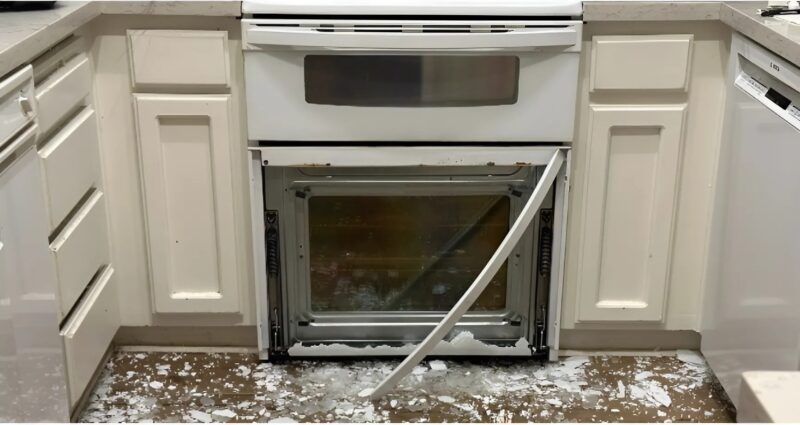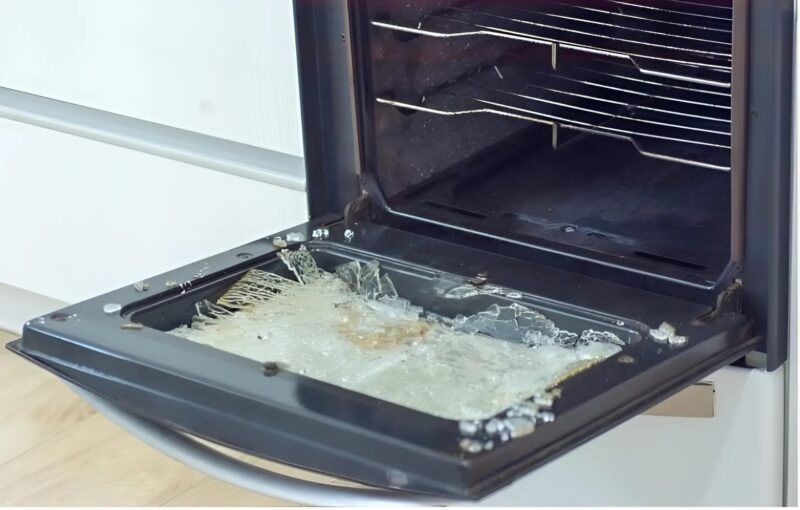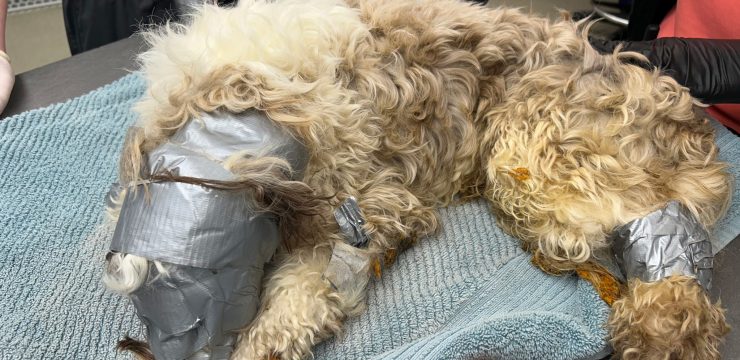An oven is often the heart of a kitchen, whether you’re baking cookies for grandkids, roasting a holiday turkey, or preparing a weeknight dinner. It’s a dependable appliance, but sometimes homeowners face a startling surprise when the oven door suddenly shatters into countless small pieces. At first glance, it may seem like a freak accident, but the truth is that shattered oven doors usually have identifiable causes, and by understanding them, you can take simple steps to reduce the risk and keep your kitchen safe.

Most oven doors are made from tempered soda-lime glass, which is designed to handle high heat and pressure, and when it breaks, it crumbles into small pebble-like pieces rather than sharp shards to minimize injury. Some higher-end ovens use borosilicate glass, which is even more resistant to temperature changes, but neither type is invincible. Glass can still fail, and the reasons usually fall into two main categories: imperfections and thermal stress. Tiny flaws can form in the glass during manufacturing, such as nickel sulfide inclusions, which are microscopic impurities that can remain hidden for years. These flaws can suddenly activate under extreme heat, like during a self-cleaning cycle when the oven reaches up to 900°F. That’s why sometimes an oven door can seem perfectly fine for years and then suddenly break during one intense cleaning session.
Another common cause is thermal stress, which happens when the glass is exposed to rapid temperature changes. Glass naturally expands and contracts with heat and cold, and if those changes happen too quickly—like placing a cold dish on a hot oven door or spilling cold water onto heated glass—the stress can cause cracks or even complete shattering. Even small hairline fractures over time weaken the glass, making it more vulnerable. Beyond these natural risks, certain user habits make the situation worse. Using abrasive cleaners like steel wool, scouring pads, or harsh chemicals can scratch the glass, leaving weak spots that may eventually crack. Placing heavy pots or pans on the oven door, even briefly, puts unnecessary pressure on the glass and frame. Pouring cold water onto hot glass or setting frozen dishes on the door when it’s hot causes thermal shock, which can be the final straw for already stressed glass. Misaligned oven doors are another hidden issue, because uneven pressure points along the frame gradually weaken the structure.
The good news is that preventing shattering is largely about being mindful and taking care of your oven. Closing the door gently rather than slamming it helps reduce unnecessary stress. When cleaning, use only soft sponges, microfiber cloths, and mild cleaners instead of abrasives. Avoid subjecting the door to sudden temperature changes, such as placing frozen foods directly on hot glass. Never use the oven door as an extra counter space to hold heavy items, whether it’s closed or open. Regularly check the door’s alignment and gasket to ensure it seals properly and that pressure is distributed evenly. And while self-cleaning functions are convenient, using them too frequently puts extreme strain on the glass, so it’s better to limit their use and clean manually when possible. Even with the best precautions, spontaneous shattering can still occur, though it is rare.

Manufacturing flaws like nickel sulfide inclusions are nearly impossible to detect ahead of time, so there’s no guaranteed way to avoid every incident. Still, treating your oven with care dramatically reduces the likelihood of breakage. It’s important to remember that tempered glass is designed to break in a safer way, turning into small rounded fragments instead of sharp pieces, but cleaning it up is still inconvenient and requires caution. If your oven door ever does shatter, the first step is ensuring your safety. Put on gloves and carefully collect all the glass, as even the rounded pieces can cause cuts. Do not use the oven again until the door has been inspected and repaired by a qualified technician.
A damaged door allows heat to escape, causes inefficient cooking, and may harm the appliance further. If your oven is under warranty, contact the manufacturer, as many will cover glass replacement if the break wasn’t due to misuse. Ultimately, the key to avoiding shattered oven doors is awareness and prevention. Understanding that the glass is strong but not indestructible helps shape safer habits. Handle the door carefully, avoid sudden temperature shocks, don’t overload the surface, and clean with gentle tools. Modern ovens are built to last, but like anything, they require proper use and maintenance. By adopting simple precautions, you can extend the life of your appliance, avoid unexpected accidents, and continue creating meals and memories without interruption. At the end of the day, prevention is always better than repair, and by respecting the limitations of your oven’s glass, you’ll keep your kitchen both functional and safe.





